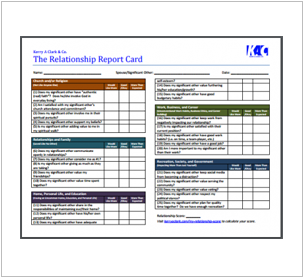7 Essential Tips for Mental Fitness
Caring for Yourself Mentally – Part 2
One of the most important things that we can do for ourselves is to give ourselves the appropriate attention that we need when caring for ourselves mentally. While we do a lot of things for our physical needs, our mind has some needs and many of the physical activities help us in achieving better mental fitness. I have several tips that I would like to give you that I found while doing my research on caring for yourself mentally.
Tip 1: Get regular exercise or activities that can substitute for exercise.
You may not realize this, but when you exercise, you isolate yourself from the outside distractions, from the noise, and the mind-pollution of the day.
I have a friend named Fred. We used to laugh about the noise that would overtake our day. It is that stuff that gets in our way, the distractions, the interruptions, the emails, the chats, the text messages, and all those things that disrupt our normal activities. But when you exercise, when you mow the lawn, or when you do some focused activities like this, what it does is it cancels out the mind-pollution, the distractions, and the noise. Therefore, your mind can focus on what your mind needs to focus on. It is no longer clouded.
 Tip 2: Eat healthy regular meals and stay hydrated.
Tip 2: Eat healthy regular meals and stay hydrated.
You don’t know how important it is that you eat regular meals. Put yourself on a routine or a schedule to eat. That way your mind does not have to work overtime to figure out when you need to eat. Prepare for your meals. Have a set time. Put it on your calendar. Don’t clutter your mind with these small mundane items.
Your mind has a lot to focus on during the day. Anything that you can do to set up a process, a routine or a habit, helps decrease the mental energy spent on such tasks and the wasted attention span.
Habits are good when you use them for the right thing. If you have a habit of eating lunch at 10:30 every day, then your mind doesn’t have to think about when you are going to eat. Give your mind one less thing to think about in this way.
Eat healthily and make sure you are eating things that help your body stay in the best condition possible. In other words, when you eat healthy, it is like eating brain food. Feed your body properly so that your brain can be at its best capacity, so that your mind has what it needs.
Stay hydrated. One of the most important things that we can do is stay hydrated. I have learned over time that many of our hunger pangs come as a result of not having enough water or fluids in our diet. Most of the time when we have hunger pangs, we think we are lacking food, but your body will tell you that you are actually lacking water. That’s why when you rise in the morning many times you think that you are hungry, but really your body is telling you to hydrate, so hydrate.
Tip 3: Make sleep a priority and participate in relaxing activities.
I learned this one from one of my mentors, Michael Hyatt. Sleep is more important than we may realize. In fact, the lack of sleep causes our brain to overwork itself. Without the proper amount of sleep, our brains will overwork itself. In fact, we become less productive when we don’t get enough sleep. We think if we keep working, working, working, we will produce at our best and possibly maximize our potential. That’s not the case. When we rest and get enough sleep, our brain is at its peak performance levels, and you can accomplish a whole lot more. So don’t neglect sleep. Make sleep a priority. This is a major part of your mental self-care.
Tip 4: Set goals and prioritize.
This is important and most people don’t understand the value of this. All that means is you have a strategy for what you want to do, and you won’t be all over the place with your activities during the day. If you have a plan for your day, you don’t have to figure out what you’re going to do. You won’t find yourself task-switching and wasting time. When you prioritize, you don’t have to be trying to figure out if I should be looking at this project versus this one. When you prioritize, you have already gone through the process. Have a scheduled time to prioritize so that your mind isn’t trying to prioritize every time you do something.
It’s no different than shuffling a deck of cards. If you’re getting ready to play cards, you shuffle the deck and you start to distribute the cards. Now, if you forget where you are in that process, you’ll reshuffle the deck again. If someone interrupts you, you reshuffle the deck again. If somebody starts talking, you say did I shuffle the deck? Then you reshuffle the deck again. Many times, we do that with the things that we have on our desk and in our minds.
Each day we get up and we must reshuffle all our tasks, assignments, projects, and everything else because we did not (one) sit down, write them down, and (two) figure out what needs to be done first and when. In this way, we get them in an organized manner and placed on our schedule. Doing this will put your mind at ease.
Tip 5: Increase your gratitude.
When you practice gratitude, what you are doing is putting your mind in the right perspective. Many times, our perspective about life is what places us in a negative mental state of being. We get anxious, depressed, and worried. This occurs when we do not have the right perspective.
There’s a book that I often reflect on called Welcome to Rain. How am I viewing the rain in my life? Am I viewing it like that businessperson who hates to see rain because it increases the amount of traffic. In other words, it slows things down. Or will I see rain like that farmer whose crop has experienced a drought, and this rain is going to make sure that his crop becomes alive and increases his harvest, his harvest season.
You have to figure out how to have the right perspective, the right perspective or the right attitude. Having the right attitude, which in this case is gratitude, changes our whole outlook and reduces the mental health challenges that we normally face.
Tip 6: Focus on positive thinking.
Have a focus on positive thinking. Most people by default focus on negative things. The default response from any person is to be negative. It takes effort, extra effort, to think about positive things. You probably need to set a reminder on your phone to go off every so often to remind you to have a positive disposition about the things in life.
Think on things worth thinking about. Sometimes we clutter our mind with things we should not even be thinking about. Sometimes we fill our mind with too much news, things that don’t even impact us. When we focus on positive stuff, it gives us a different outlook on life.
Tip 7: Stay connected to good people.
You want to get yourself around people who are going in the direction that you are going. Stay connected. Stay connected to the right group of people, to the right fellowships, to the right circles. Therefore, you don’t have people pulling and tugging at you, overloading your mind again. These types of people are what I call detractors. You are going to need to stay away from the detractors. Instead, you will get around people who can add to your life, not take from it.
Anxiety, depression, worry, and other mental challenges like these all overtake us because we are not connected to the right people, but stay connected to the wrong people.
Watch and monitor your connections and stay connected with the right people. When you break apart from others that are not like you, you set yourself up to be back in a mental state that is healthy.
This information is inspired by some research I found by the National Institute of Mental Health. I probably should have told you that upfront, because they are experts in the field. They are the ones who have truly done the homework, the people who have done the study. If you want to have your life going in a better direction, take note of these simple yet powerful tips.
By the way regarding these tips, most people don’t do these things.
Most people don’t exercise regularly.
Most people don’t eat regular meals, healthy meals, and stay hydrated.
Most people don’t sleep enough or have the proper amount of sleep.
Most people don’t participate in relaxing activities.
Most people don’t set goals and neither do they prioritize.
Most people don’t practice gratitude.
Most people are negative, not positive, and
Most people are not connected to the right people.
Those decisions are a recipe for poor mental health. So, if you want to reverse the effects of negative mental health, then you will reverse these actions. You will start to change, start taking on these practices, improve in these principles, and practice these tips. Your life will then start to improve in its mental health and your mental fitness would then begin to go to the next level.
Question: Which one of these practical tips can you start to work on today?
 is available now!
Our team has worked very hard putting it together. We designed it to help you and your family move the needle forward in making your life your business.
Find out more about the Family plan here.
is available now!
Our team has worked very hard putting it together. We designed it to help you and your family move the needle forward in making your life your business.
Find out more about the Family plan here.


Leave a Reply